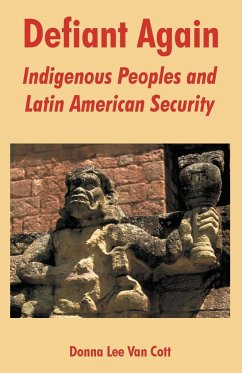Since the Conquest, indigenous communities throughout Latin America have endured with astonishing restraint a multitude of impositions and indignities. Occasionally that restraint has been punctuated by cycles of rebellion and repression. Violent confrontations between Indian organizations and the state in the last two years indicate a growing frustration by indigenous peoples with political attempts to advance their demands. Major altercations have occurred in Mexico, Ecuador, and Bolivia, with smaller scale confrontations becoming a regular occurrence as Indian communities grow increasingly defiant of state authority in the wake of repeated violations of indigenous territorial and human rights. While in some countries such groups have been able to achieve recognition and protection through constitutional and legal reforms, Indians in general continue to be disproportionately the poorest of the poor and regular victims of human rights abuses. They are chronically under represented in political office in all countries of the Americas. This paper explores the complex nexus of security issues that the governments of Latin America and the indigenous communities of the region face at the end of the 20th century. A better understanding of security issues from the perspective of indigenous communities should enable policymakers in the United States to estimate more accurately how U.S. policy plays a role in the aggravation or resolution of interethnic conflict in Latin America. Although the national contexts of indigenous-state relations differ markedly throughout the hemisphere, relevant issues of national security are strikingly similar -- maintenance of international borders, eradication and interdiction of drugs, suppression of armed insurgencies, and containment of rural unrest. National governments, state armed forces, and indigenous peoples, however, all have different conceptions of the meaning of "national security."
Hinweis: Dieser Artikel kann nur an eine deutsche Lieferadresse ausgeliefert werden.
Hinweis: Dieser Artikel kann nur an eine deutsche Lieferadresse ausgeliefert werden.








